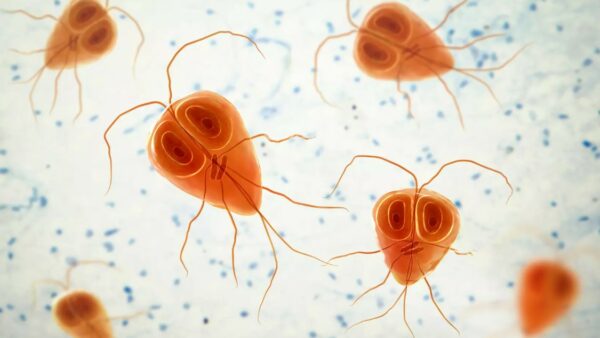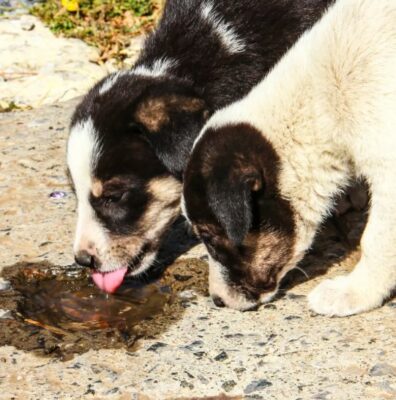Giardia in dogs

WHAT YOU WILL READ IN THE TEXT:
What are the symptoms of giardiasis in dogs?
Causes of giardiasis in dogs
How is giardia diagnosed in dogs?
Treatment of giardiasis in dogs
How can I help my dog recover faster from giardiasis?
Can my dog transmit giardiasis to me?
How is giardiasis diagnosed in dogs?
If giardiasis is suspected, your vet will first review your dog's medical history and perform a thorough physical examination to assess general health. This will include checking for signs of abdominal bloating, abdominal pain and possible dehydration.
After the physical examination, you will probably have to collect stools from your dog for three consecutive days. This stool will then be sent to the laboratory for analysis to determine the presence of Giardia in the stool.
In addition, your vet may also suggest the following tests:
- Test for parvovirus to rule out the presence of this very dangerous virus as a possible cause.
- Coprological research, which is also performed via stool analysis, to rule out other possible intestinal parasites, such as coccidia, toxoplasma and cryptosporidium.
Treatment of giardiasis in dogs 
The drugs most often used to remove Giardia from a dog's body are Fenbendazole (Panacur) or Metronidazole, an antibiotic. If necessary, your vet may prescribe a combination of these drugs.
Since giardia is a stubborn parasite and removing it from the dog's body can sometimes be difficult, several rounds of treatment may be needed to cure giardiasis completely.
In addition, treatment will vary depending on your dog's health condition. Because Giardia can cause severe diarrhoea and dehydration in some dogs, the vet may prescribe additional medication to combat these symptoms.
Two to four weeks after completing therapy, you should have another stool sample analysed to check whether the giardiasis has completely healed.
Bathing your dog
 It is recommended to wash your dog on the first and last day of therapy to effectively remove any giardiacy residue on his fur.
It is recommended to wash your dog on the first and last day of therapy to effectively remove any giardiacy residue on his fur.
- Use a mild dog shampoo and massage it thoroughly into your dog's skin. Then rinse carefully with water to ensure that all shampoo and any remaining cysts have been removed.
Probiotics and special diet for the gastrointestinal tract
Your vet will probably recommend feeding your dog a special gastrointestinal diet during treatment for giardiasis. This will relieve your dog's diarrhoea and contribute to a faster recovery.
- It is also advisable to include probiotics in your four-legged friend's diet. Probiotics contain beneficial bacteria that support digestive system health and improve the overall effectiveness of therapy.
With proper care, nutrition and hygiene, you can help your dog recover faster from giardiasis and prevent future infections.
Strengthening your dog's immune system
A strong immune system plays a crucial role in protecting and controlling giardia.
Giardia can significantly weaken your dog's immune system. Using nutritional supplements to strengthen the immune system has a powerful effect on both treating giardiasis and preventing a new infection. Trust us, a strong immune system is your dog's biggest enemy of giardia.
By focusing on building a robust immune system, you not only help your dog recover faster, but also reduce the chances of reinfection.
Can my dog transmit giardia to me?
Giardia can be transmitted from dogs to humans. If your dog has giardia, follow hygiene measures to prevent the spread of the infection to yourself or your family.
It is useful to know that giardia survives in water and is sensitive to dry conditions, so it is important to maintain a dry and clean environment.

